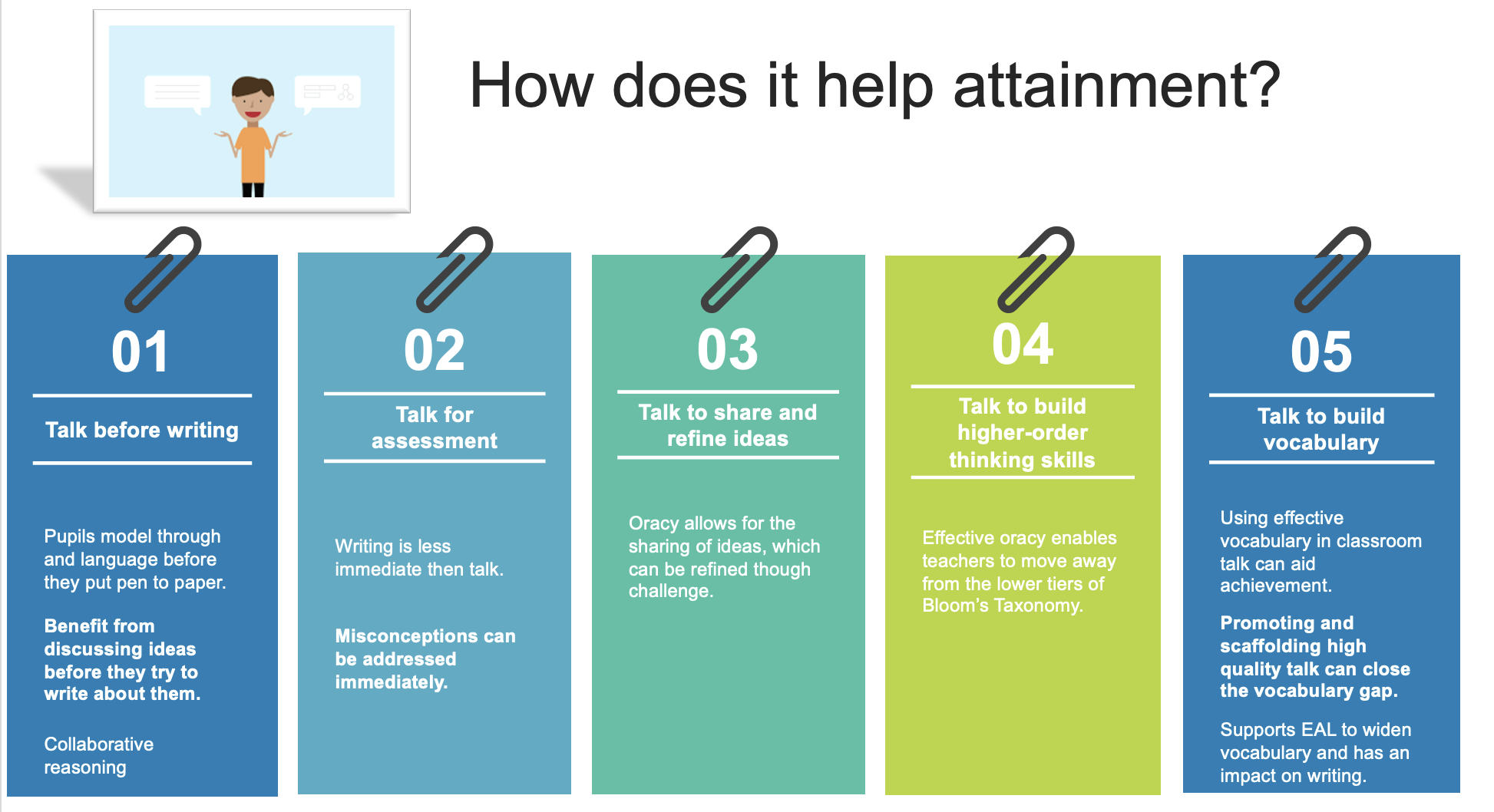Download our FREE smartphone app today!
Oracy
Oracy at Valley Invicta Primary School at Holborough Lakes.
At Valley Invicta Primary School at Holborough Lakes, oracy plays a prominent role in teaching and learning. The ability to listen actively, speak clearly and communicate articulately is seen as a fundamental part of the learning process. Critically, oracy underpins the development of reading and writing, and is the key to progress in all subjects. We aim to encourage fluent speakers, who are confident to communicate, debate and present in a wide range of situations. Oracy is embedded throughout our global learning themes, lessons are talk-rich, and final outcomes are carefully planned to ensure all children can fully participate.
Oracy can be split into two distinct categories – performance and critical oracy. Performance oracy happens through pupils engagement in reading aloud, reciting poetry and performing lines in a play. These are all excellent tools for building confidence, developing memory and developing empathy. However, critical oracy involves engaging with other people, ideas and the outside world. These are all vital skills that link to our Bloom’s approach to the curriculum and enables pupils to present the knowledge and understanding they have gained through the learning journey.
What skills are developed through critical oracy?
- Analysis
- Reasoning
- Critical listening
- Use of evidence
- Self confidence
- Persuasive speaking skills
- Teamwork
- Research
- Thinking on your feet, under pressure
- Ability to see two sides of an issue
- Use of formal vocabulary
- Use of standard English
- Developing greater understanding of subject matter
- Developing empathy
How does it help attainment?

Oracy Framework
At Valley Invicta Primary School at Holborough Lakes, we use an oracy framework and progress ladder. This framework breaks oracy into five strands:
- Reasoning
- Listening and responding
- Organisation
- Language
- Delivery
This frameworks allows both staff and pupils to understand what makes good spoken communication. The five strands enable successful discussion, inspiring speech and effective communication. The framework is used by staff to give feedback and assess progress. Furthermore, pupils can use the framework to self-assess, peer-assess and talk about oracy skills.
Progression in Oracy
To ensure progression in oracy skills, each year group has a progression roadmap. The progression map outlines the targets for each term, based on the five strands. Please click here to view the Progression in Oracy roadmaps for each year group.
Rights Respecting
We are a rights respecting school and ensure that every child has access to their rights. Our approach to oracy supports Article 12 and 13 on the UN Convention of the rights of the child.
Article 12 (respect for the views of the child) Every child has the right to express their views, feelings and wishes in all matters affecting them, and to have their views considered and taken seriously.
Article 13 (freedom of expression) Every child must be free to express their thoughts and opinions and to access all kinds of information, as long as it is within the law.
Read the oracy policy here.
Progression in Oracy
Progression in Oracy
To ensure progression in oracy skills, each year group has a progression roadmap. The progression map outlines the targets for each term, based on the five strands. Please click here to view the Progression in Oracy roadmaps for each year group.























